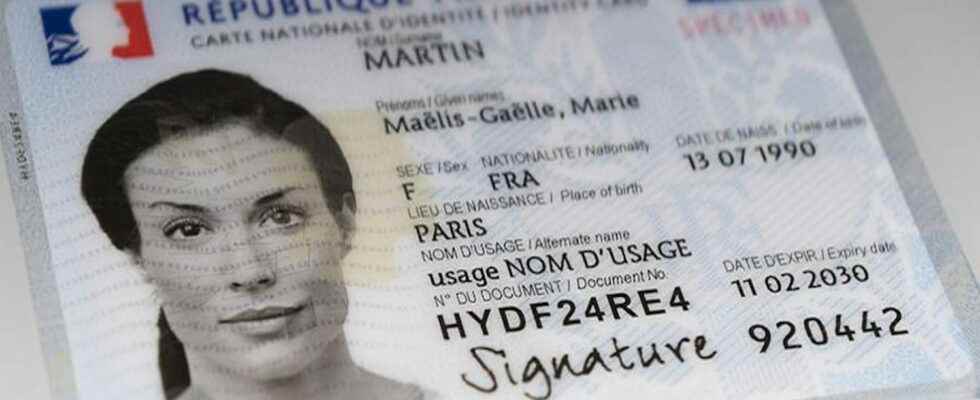The future Digital Identity Guarantee Service (SGIN) will be based on a mobile app making it easier to identify yourself with online services linked to FranceConnect thanks to the personal data stored on the biometric identity card.
SGIN, for Digital Identity Guarantee Service. This is the official name of the future digital identification service whose creation has just been authorized by Decree No. 2022-676 of April 26, 2022 published in the Official Journal. This project, which has just been dubbed by the CNIL (the National Commission for Computing and Liberties) as reported by the Gazette of the Commons, marks a new stage in dematerialization, the Government wishing for several years to simplify and modernize all administrative tasks. The stated objective of the public authorities is simple: to make life easier for Internet users (users, consumers, citizens) by simplifying identification and access to several hundred online services (public and private) starting with those (Ameli, Taxes, La Poste, MaPrimeRénov’, CAF, Pôle Emploi, etc.) associated with the authentication platform FranceConnect.
Digital Identity Guarantee Service: Mandatory NFC and CNIe
In practice, SGIN will be based on a mobile application, which will obviously be available in Android and iOS versions. Although of official origin, this app will not have any mandatory character likely to attract the wrath of defenders of public and digital freedoms. However, to use SGIN, several conditions must be met. First, have a smartphone equipped with an NFC chip (the contactless technology used in particular for payments and certain transport tickets). Then, to be the proud holder of a national electronic identity card latest generation (available since August 2, 2021), in credit card format (ID-1), and often called a biometric identity card. In fact, the SGIN application will not be compatible with the old plastic national identity card, nor with biometric passports. To facilitate authentication to compatible online services, SGIN’s technological promise consists in scanning the information, which is as much (very) personal data (surname, first name, date of birth, photo, postal address, email, etc.) stored from securely on the user’s new biometric ID card, with the notable exception of the scanned fingerprint image.
SGIN: a service to simplify online identification
The claimed ambition is to eventually make the SGIN mobile application a reference universal means of authentication that can allow you to connect to a very large number of online services without having to enter your contact details each time. . Moreover, and this is a reassuring element in a world where every day we have the (well-founded) feeling of losing control over the management of our personal data, SGIN is not intended to transmit the all of a user’s information each time the user wishes to connect to an online service, but on the contrary only the information necessary for this connection. As the decree states, this application should “allow the user, in particular, to generate electronic certificates containing only the identity attributes which he considers necessary to transmit to third parties of his choice.. In other words, the user should be free to choose the data transferred, for example, his date of birth only, to prove his majority.
In very legal language by nature, the decree published on April 26, 2022 in the Official Journal and relating to the creation of the future SGIN mobile application defines the terms of its operation, but also the nature and duration of storage of the recorded data, and the categories of people who can access this data (or who will be the recipients). The decree concerning SGIN repeals another decree, the one creatingALICEM (for “Certified Online Authentication on Mobile”), illustrious but much criticized precedent which aimed to simplify online administrative procedures and create a highly secure digital identity, in particular by using biometric facial recognition technology. For now, no launch date for the SGIN application has been announced.
